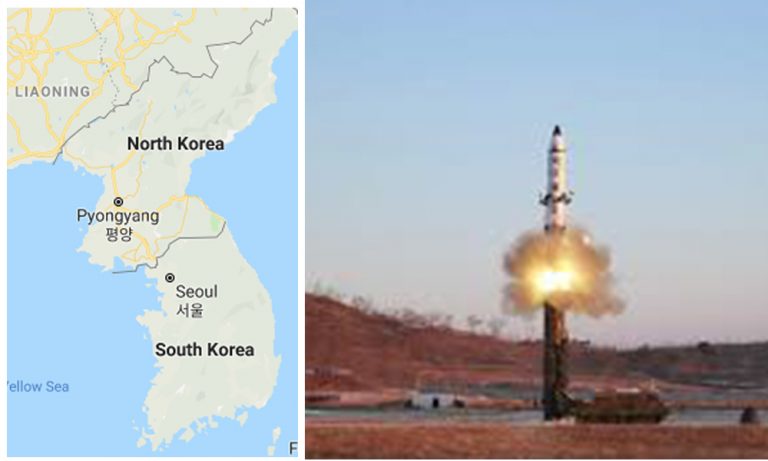
North Korea missile test a warning to South Korean warmongers:
North Korea said on Friday its latest missile launch was a warning to South Korean “warmongers” to stop importing weapons and conducting joint military drills, a message that analysts said was also aimed at the United States.
North Korean leader Kim Jong Un personally watched the test-fire of two short-range ballistic missiles on Thursday, the first test since Kim met with U.S. President Donald Trump last month and agreed to revive denuclearization talks. The missile tests raises doubts about the revival of denuclearization talks, which stalled after the collapse of a second summit between Kim and Trump in Hanoi in February.
A joint review with the United States showed that both missiles flew some 600 km (373 miles), further than similar previous missile tests, Reuters reported. The official also said the missiles bore features similar to Russia’ SS-26 Iskander and the ones the North tested in May – a relatively small, fast missile that experts say is easier to hide, launch and maneuver in flight.
‘North Korea’s economy worst in 21 years’: South Korea
North Korea’s economy shrank in 2018 for a second straight year, and by the most in 21 years, hit by international sanctions to stop its nuclear program and by severe drought, South Korea’s central bank said on Friday.
North Korea’s gross domestic product (GDP) contracted by 4.1% last year in real terms, the worst since 1997 and the second consecutive year of decline after a 3.5% fall in 2017, the South’s Bank of Korea estimated.
North Korea does not disclose any statistics on its economy. The South Korean central bank has been publishing its estimates since 1991, based on information from various sources including the South’s foreign trading agencies.
North Korea’s international trade fell 48.4% in value in 2018 as tougher international sanctions in late 2016 and 2017 cut exports by nearly 90%, the Bank of Korea said.
Output in the mining sector shrank 17.8% because of sanctions on exports of coal and minerals, while the agriculture, forestry and fisheries sector contracted by 1.8% because of drought, it said.
North Korea’s population was estimated at 25.13 million and annual income per head at $1,298, the South Korean central bank said.





